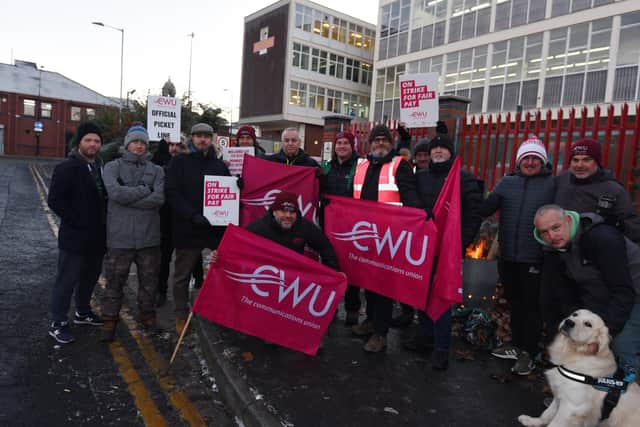Changing nature of the market poses a risk to Royal Mail, that’s why we need change the way we work - Ricky McAulay
The postie is part of each community in the country, delivering to every address for one fixed price.
We are proud to provide that universal service and our commitment to it is firm, even though we need reform of the obligation, from six-day letter delivery to five, to help make it financially sustainable.
Advertisement
Hide AdAdvertisement
Hide AdMr McDonald is also right to say that there is “risk” to Royal Mail. Where we differ is in the causes of that risk and the route to rebuilding this great business.


The risk to Royal Mail lies in the changing nature of the market in which we operate. The network and logistical operation that sits behind the postie was built decades ago to deliver letters.
But today’s customers are sending 60 per cent fewer letters than they used to. Instead, they are sending more parcels - parcels accounted for almost £6 out of every £10 of our revenue last year.
We know that customers want their parcels delivered quickly, seven-days a week, and with less impact on the environment. So, we have invested £900m over three years to meet their demands: building two parcel sorting super hubs, updating our Mail Centres to handle parcels efficiently, and investing in electric vehicles.
Advertisement
Hide AdAdvertisement
Hide AdBut this is not enough. We are operating in a highly competitive environment and to survive we need to change the way we work to deliver more parcels when customers want to receive them; often now ordered late into the evening for delivery the next day and at weekends, including Sundays.
These proposed changes are at the heart of our pay for change dispute with the CWU.
We are proud to have the best terms and conditions in our industry, and our leadership in that space is a point of difference with our gig economy competitors.
We are bringing in new recruits on different contracts, but their terms, conditions and pensions will still be the best in the industry. This is not the gig economy.
Advertisement
Hide AdAdvertisement
Hide AdNonetheless, we know that change can be hard and we want it to work for our employees, so we have listened carefully to colleagues and have made significant improvements to our proposals. Existing employees who are not required to work Sundays won’t have to. And we are introducing family friendly schemes to balance our need for more afternoon working with the needs of our people.
While we have been prepared to listen and amend our position throughout our negotiations with the CWU, it is vital to state that change is not optional.
Royal Mail is losing more than £1m a day, so we must change to put the business on a stable footing and secure good pay and industry-leading terms and conditions for the future.
We have always been clear with the CWU that, if they agree to the change we need, we will be able to afford the conditional pay offer, worth up to 9 per cent, that is on the table. Without change, the pay offer becomes unaffordable, and more jobs will be put at risk.
Ricky McAulay is the operations development director at Royal Mail.